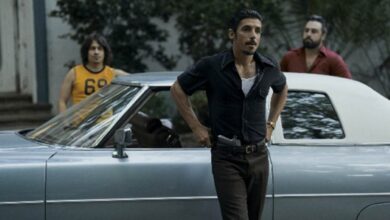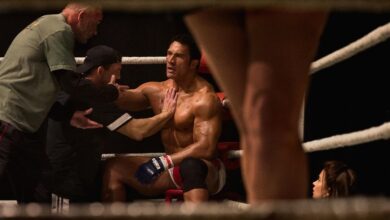Review of “Women Talking”: Conversing to Exist
In Sarah Polley's film, based on the novel by Miriam Towes and inspired by actual events, eight women talk to reconcile their faith with the systematic abuses of a patriarchal society. This is our review of "Women Talking," nominated for an Oscar for Best Adapted Screenplay and Best Picture.

Photo: Universal Pictures
LatinAmerican Post | Juan Andrés Rodríguez
Listen to this article
Leer en español: Reseña de “Ellas hablan”: conversar para existir
An actual shocking event inspires the novel "Women Talking" by Miriam Toews. In the Mennonite religious community in Bolivia, women reported that they woke up drugged, bloody, and with signs of sexual abuse. Their complaints to community leaders were dismissed by describing them as hallucinations and demonic possession. After four years, it was found that a group of nine men drugged them while they slept to rape them. In total, more than 100 cases were reported.
Toews resignifies this extreme display of patriarchal violence in what she describes as "an act of female imagination." In the book, when the culprits are captured, the community leaders take the men back to town to pay bail and demand that the women forgive the attackers when they return because forgiveness is the only way to enter the kingdom of heaven. If they refuse, they will be exiled. They, who have been ignored for a lifetime, organize a vote to decide their future, in which they tied two options: stay and fight or leave. Eight of them are in charge of making the final decision before the return.
This powerful premise is successfully brought to the big screen thanks to the work of director Sarah Polley. Although its visual language could be more elaborate, the solidity of the script and the strength of the cast's performances engage the audience in conversations about the coercive mechanisms of patriarchal society and how women can imagine their place in the world.
Define a Course
Stay and fight or leave. How to fight in a system that does not value your existence? Where to go if everything known and loved is linked to a space where violence has occurred? The decision in the eight protagonists' hands takes work. They seek to reconcile between the principles of a faith that speaks of love and respect, which they follow with true devotion, but that in their doctrines does not give rise to the pain they feel in the face of the violence experienced.
The film focuses on dialogue as the primary narrative tool to answer these questions. Polley's script is brilliant, as it creates a choral story that recognizes from each character the multiple realities of women and delves into the origins of their positions. Ona (Rooney Mara) has hope in the unknown, which is better than hate for the familiar. Salome (Claire Foy) challenges the idea of a benevolent God but condemns his hatred for the men who abused her four-year-old daughter. Mariche (Jessie Buckley) is outraged that forgiveness is being questioned until now, when it was her only option for years in the face of her husband's abuse.
This thematic elaboration makes the film resonate outside the context of religious extremism. Although not all women's struggles are the same, they all face the violence of a macho society. This story is an acknowledgment of the hundreds of ways in which women have challenged the discourses that indicate their duty to be and have fought for the fundamental right to be able to decide on the course of their lives.
Read also: Review of "Tár": Obsession for control
The Place of Men
August (Ben Whishaw) is the only man present at the meeting, invited to take the record. His family was excommunicated, and he attended college but returned to be the boys' teacher. Faced with the possibility of leaving, the women ask him if the children should accompany them and if those children they love should also be feared because they can replicate those acts. Her character is critical to exploring the place of men in this discourse and the origin of male violence.
His response is one of the most memorable moments because it highlights the role of education as one of the bases of the inequality system. There is also an imposition of the duty to be on men, the idea that they have a right over the world and, therefore, they can do whatever they want, that their brutality reaffirms that identity and that the rejection of the opposite means. This imposition must be fought and transformed to end the cycle of violence.
"Women Talking" is an excellent adaptation thanks to Sarah Polley's interest in analyzing the factors that shape violence in a patriarchal society. Its script quickly intertwines many themes with a poetic elaboration used by its fantastic cast to make each sentence memorable. A story that takes a shocking event to redefine it from the female imagination and turns it into an unforgettable tale of the power of sorority.




